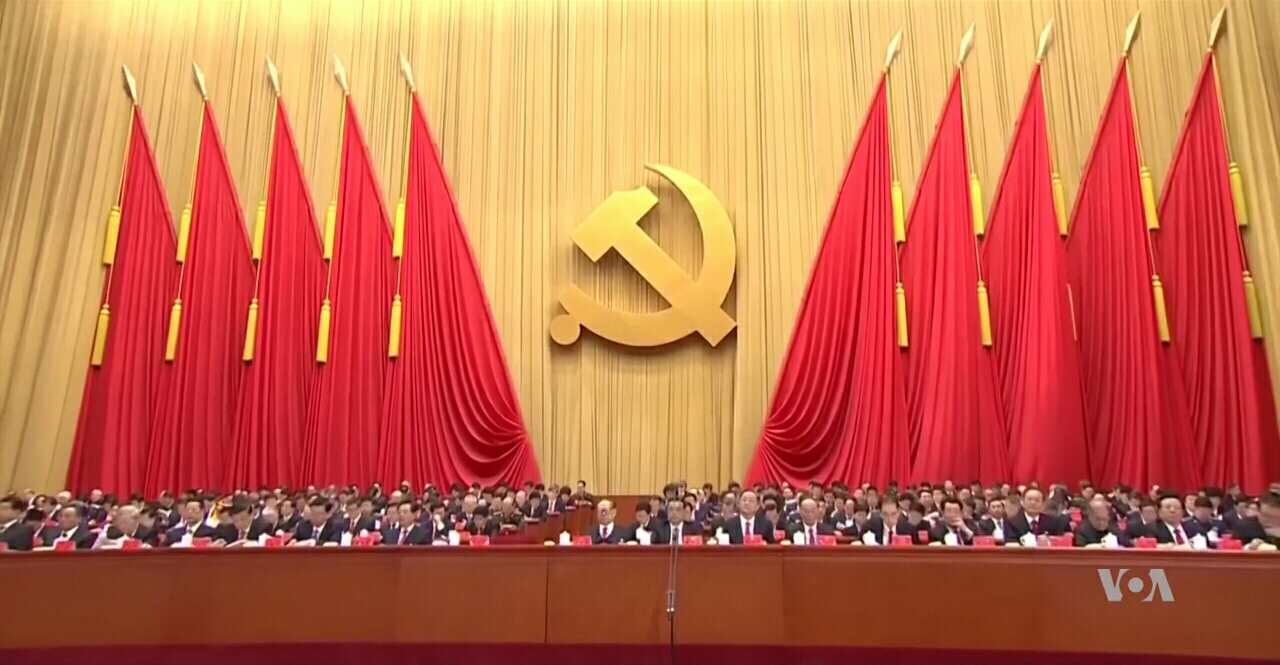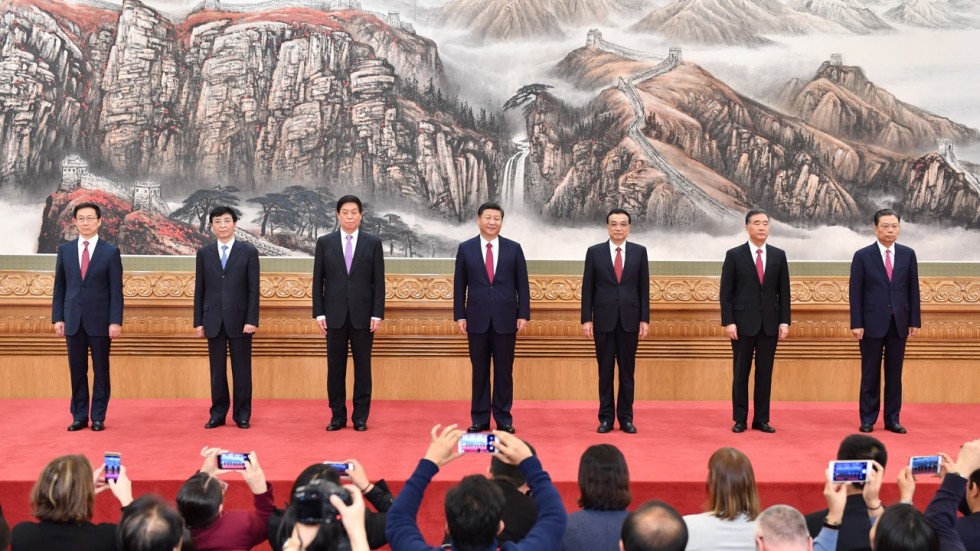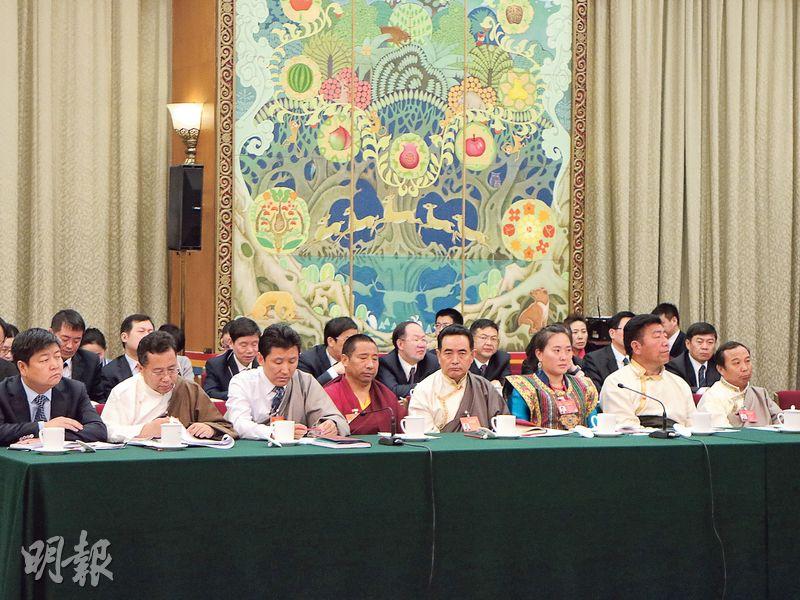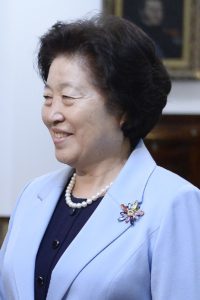China’s Glass Ceiling: Exclusion of Women from High-Ranking Positions

The closing of the 19th National Congress of the Chinese Communist Party (CCP), also known as the Party Congress, once again presented the same old story: all seven Politburo Standing Committee members are male. Even with 26% of the 86.3 million members of the Communist Party being women, it remains difficult to find female representation in Party political positions —not to mention in the top ranks. Since the Communist Party came to power in 1949, no woman has ever sat in this elite ruling body, which in effect controls every aspect of Chinese governance. Despite Mao’s liberating rhetoric regarding women’s status in the society when he proclaimed that “women uphold half the sky,” women today still encounter hardships in breaking the political glass ceiling.

When the People’s Republic of China was established in 1949, Mao issued a series of laws forbidding concubines, illegalizing child marriage, and liberating women from old traditions like foot binding. In the 1980s, women were allowed and encouraged to participate in village elections and ran for committee leadership positions. Even though the CCP has progressively incorporated women, almost seventy years after the first legal code was issued for the benefit of Chinese women, the percentage of women in the upper levels of politics is still low. The 25-member Politburo, which selected the seven-member Politburo Standing Committee, historically has had just two women, who happened to be the wives of Mao Zedong and Lin Biao, Mao’s designated successor. No other women appeared among this elite Party organ.
Despite China’s constitutional commitments to gender equality, China’s institutional setup for achieving power —both formal and informal— overall disadvantages women. While the Party appears to pay lip service to gender equality, in reality, most women lack the informal guanxi (personalistic) networks to climb the ranks. Without a patron who can recommend a woman to a low-level position, advancement in Chinese society is highly restricted. Under such prohibitory informal networks, the newly liberated women lack political resources to be promoted upward. On the formal side, the national retirement age for women also hinders their advancement to high-level politics. The retirement age for female civil servants and state enterprise employees is 55 years old, while male civil servants serve until 60 years old. With limited informal networking resources and age restrictions, women easily remain stuck in low-level positions for their entire working careers.

Male colleagues’ general distrust toward women forms another barrier for women seeking high-level leadership positions. While men are used to seeing increasing numbers of women in lower-level positions, a majority of them are cautious when establishing patron-client relationships with female peers. Women’s ability to lead is still questioned by male peers due to lasting social and cultural impressions that women are not capable of holding important positions.
The cadre rotation system used by the CCP is also a huge barrier for women. In order to advance formally, one official has to rotate between different positions in various departments in different provinces to gain experience. Additionally, if the female official is married, the fear of her leaving after pregnancy is another barrier. If the woman is single, the idea of her getting married also becomes a factor. Either way, women face greater challenges to participate in the rotation system than men, making women less likely to be promoted. Thus, top-level positions tend to exclude women at the outset. On top of these doubts, women are sometimes forced to participate in sexual relationships in exchange for recommendations, in addition to giving monetary bribes. The traditional patriarchal mindset has thus not escaped the political arena.

For women who rise to intermediate positions in the government, their choices are very limited. All the important positions within the Ministry of State Security, State Council Information Office, or Ministry of Environmental Protection are male-dominated. Women are often relegated to positions in cultural or social bureaus, such as organizers of promotional events for the CCP in cities, or in family planning bureaus before the One Child Policy was changed. The gendered division of labour has reinforced gender norms by creating the impression that women cannot lead from important positions.
While the number of women in the 19th Party Congress has increased by 3.2% since the 18th Congress, the future of women rising to senior leadership positions is still bleak. Out of the 771 female delegates, the increase in delegates predominantly came from migrant workers, farmers, technical personnel, and ethnic groups. In other words, these delegates are women from lower-level positions; none of them are from higher ranks in the society. The Politburo Central Committee’s number of women decreased from thirteen to ten people, with three of the members retiring after the 19th Party Congress due to age restrictions. With no female peers, these three positions are filled by male counterparts within the Politburo Standing Committee.
The future of women advancing to senior leadership has the possibility to stagnate if the CCP does not implement policies to alleviate these institutional and cultural barriers for women. The CCP has prided itself on a history of acknowledging and including women, but in practice, the path of true inclusivity still has a long way to go.
Edited by Jason Li
